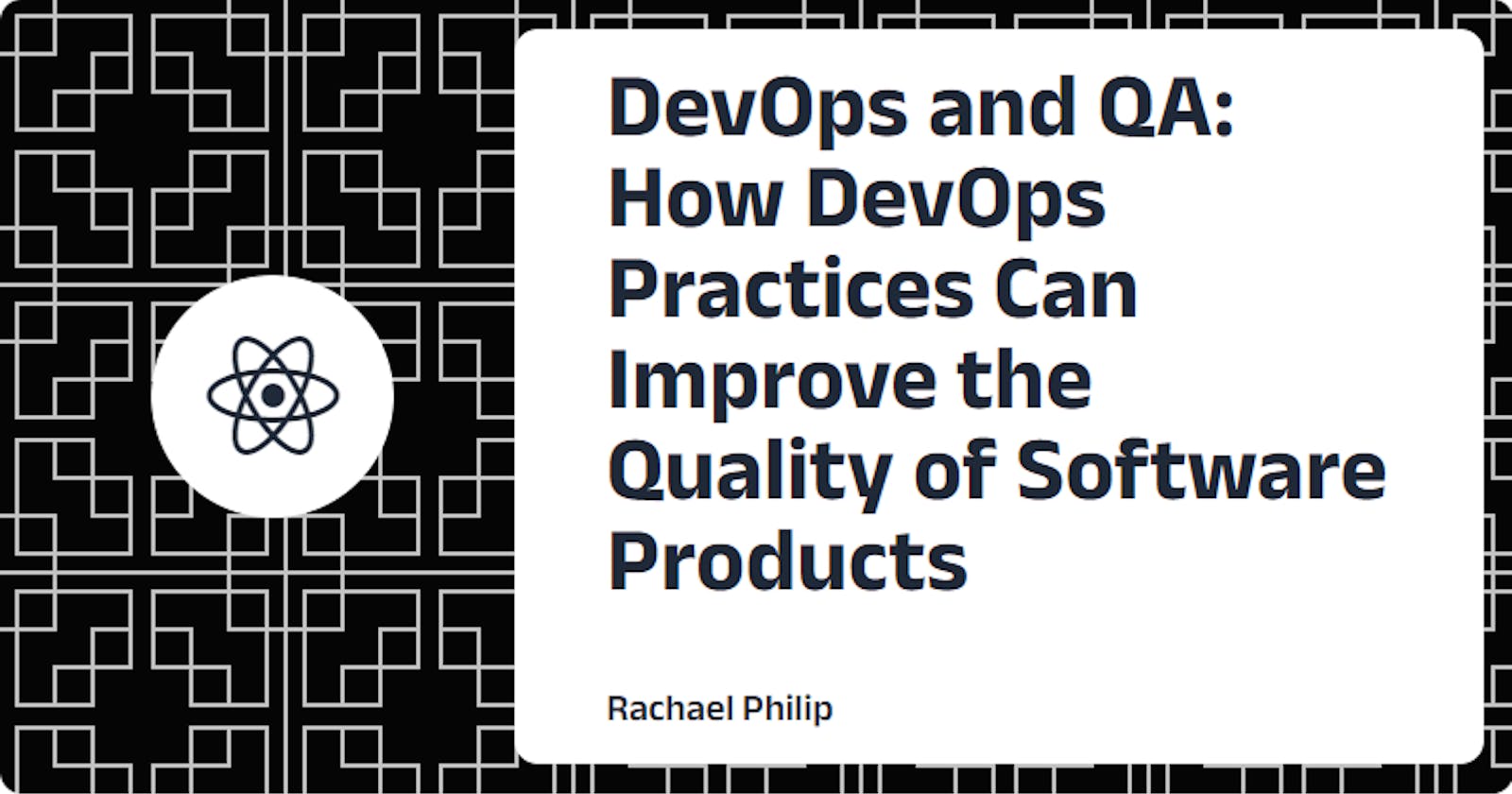DevOps and QA: How DevOps Practices Can Improve the Quality of Software Products.
In the rapidly evolving world of software development, delivering high-quality products is paramount to success. Traditionally, software development and quality assurance (QA) teams have operated separately, resulting in communication gaps, slower feedback loops, and ultimately compromised product quality.
However, DevOps practices have revolutionized the software development lifecycle, bridging the gap between development and QA teams. In this article, we will explore how DevOps practices can significantly enhance the quality of software products.
Continuous Integration and Continuous Deployment (CI/CD):
- DevOps promotes the implementation of CI/CD pipelines, enabling developers to merge their code changes frequently into a shared repository. This approach accelerates development cycles and ensures early detection of defects. QA teams benefit from this by gaining quick access to the latest code changes, enabling them to perform more comprehensive testing and detect bugs earlier in the development process. Early bug detection translates into faster bug fixes and improved product stability.
Collaboration and Communication:
- DevOps encourages collaboration and communication among cross-functional teams. Developers, operations personnel, and QA engineers work together throughout the software development lifecycle, resulting in better visibility and transparency.
QA engineers can provide valuable feedback on the design and implementation of features, ensuring that potential quality issues are addressed early on. By involving QA earlier in the process, the overall quality of the software product is significantly enhanced.
Test Automation:
- One of the core principles of DevOps is the automation of repetitive and manual tasks. This principle extends to QA activities as well. With the integration of automated testing tools into the CI/CD pipeline, QA engineers can build comprehensive test suites and execute them continuously. Test automation improves efficiency, reduces human error, and provides quick feedback on the quality of the software. It allows QA teams to focus on more critical and exploratory testing, ensuring higher test coverage and improved software quality.
Infrastructure as Code (IaC):
- DevOps emphasizes treating infrastructure as code, enabling teams to define and manage infrastructure resources automatedly using tools like configuration management and infrastructure provisioning scripts.
The entire infrastructure setup becomes reproducible, consistent, and version-controlled. This approach ensures that the testing environment matches the production environment accurately. QA teams can conduct tests on realistic set-ups, generating more accurate results and increased product reliability.
Continuous Monitoring and Feedback:
- DevOps promotes continuous monitoring of software applications in production environments. By leveraging monitoring tools, metrics, and logging, teams can gain real-time insights into the performance and behavior of the software product. This data helps QA teams identify potential quality issues, bottlenecks, and security vulnerabilities. Timely feedback allows for quick corrective actions, resulting in improved product quality, enhanced user experience, and increased customer satisfaction.
Conclusion:
DevOps practices have revolutionized how software is developed and delivered by fostering collaboration, implementing automation, and streamlining processes. DevOps significantly improves the quality of software products.
Through Continuous Integration and Deployment, collaborative communication, Infrastructure as Code, and Automated Testing, organizations can achieve faster delivery cycles, reduce bugs and issues, and ensure higher customer satisfaction.
If you would love to become a QA expert, consider exploring the UnbugQA Academy. UnbugQA offers comprehensive courses designed to equip individuals with the skills and expertise needed to excel in the field of QA. With a 3-month program focused on practical training and real-world scenarios, the UnbugQA Academy can be your pathway to a successful career in quality assurance.
Visit the UnbugQA Academy to learn more about their offerings and kickstart your journey to becoming a QA expert.
Remember, in the era of DevOps, quality is everyone's responsibility, and with the best knowledge and skills, you can deliver quality software products
